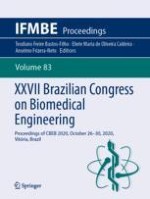2022 | OriginalPaper | Chapter
Control Design Inspired by Motors Primitives to Coordinate the Functioning of an Active Knee Orthosis for Robotic Rehabilitation
Authors : P. F. Nunes, D. Mosconi, I. Ostan, A. A. G. Siqueira
Published in: XXVII Brazilian Congress on Biomedical Engineering
Publisher: Springer International Publishing
Activate our intelligent search to find suitable subject content or patents.
Select sections of text to find matching patents with Artificial Intelligence. powered by
Select sections of text to find additional relevant content using AI-assisted search. powered by
